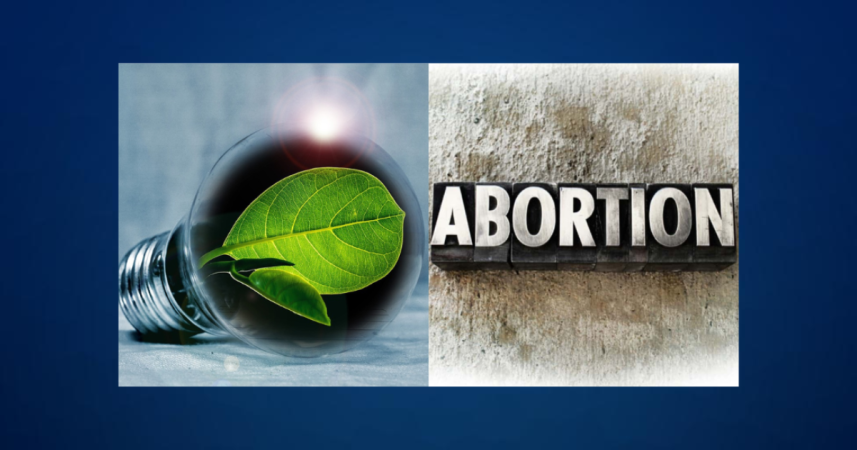You may think the recent Virginia election was about abortion, but follow the money. The wave of advertising on that issue was largely bankrolled by the renewable energy industry. This election was about energy and delivered to those special interests the legislature they needed to stay in control of that agenda.
Dominion Energy Virginia increased its donations to Virginia state politicians six-fold in just four years. The other major donors in the energy regulation arena, Clean Virginia Fund, and its founder, have done much the same. They are donating five times more in the 2023 election cycle than they did in the similar 2019 cycle.
The two political behemoths have donated about $23 million between them, compared to about $4 million four years ago. The totals really won’t be known until the final reports are due in the coming weeks. Throw in another $2 million from the League of Conservation Voters for good measure. Then the spouse of the Clean Virginia founder directly donated another $4.5 million in her own name.
While Dominion and Clean Virginia often disagree over regulatory issues, on many issues they are closely aligned. If any serious effort is put forward now to repeal or amend the Virginia Clean Economy Act, both will lobby against ending the net-zero targets. Both are keen for electric vehicles and will work to protect that mandate. Both strongly support Dominion’s offshore wind development and rapidly growing fleet of solar farms.
Virginia’s election laws are so porous, that the real spending amount may never be clear. In the last weekend, another round of mailings in favor of various candidates appeared from an advocacy group called Power for Tomorrow. It sent similar mailings out just before the June primary.
Reporting at that time noted that Dominion had provided funding for Power for Tomorrow, which basically is praising candidates who had voted for Dominion’s 2023 regulatory bill, which had its good and bad points. There is every reason to believe it is acting at Dominion’s behest and no question these mailers are intended to promote the candidates.
The Power for Tomorrow mailer appeared just one day after the State Corporation Commission implemented part of that bill, allowing Dominion to convert two years of unpaid fuel bills into a bond, and then make its ratepayers pay off the bond over 7 years.
Depending on the final interest rates on the deal, that will cost Virginians hundreds of millions of dollars in interest they otherwise would not owe. It removes a pesky $1.3 billion debt from the company’s balance sheet and replaces it with a quick infusion of free cash flow.
Keep those sums in mind as it helps explain what you will read next.
The Virginia Public Access Project’s most recent compilation shows Dominion’s 2022-23 total for donations at $12.8 million. Four years ago, when the House of Delegates and Virginia Senate were last both on the line, the total donated was a mere $2 million and change.
Clean Virginia was founded with the express mission of weaning Virginia politicians off of Dominion money. Its issue advocacy has included campaign finance reform, but it is also a lobbying group pushing wind, solar, and battery electricity generation and fighting to end fossil fuels. On the election reform front, it has merely started a bidding war for influence.
In this cycle, its total donations are up to $10 million and change. Four years ago, it donated less than $400,000. But its principal donor and leader is wealthy Charlottesville hedge fund founder Michael Bills, and in 2019 he mainly gave his money directly to candidates. Between them, the total was about $2 million, so the figure four years later is five times that amount.
This is equally astounding: four years ago, the largest sum Dominion gave to any individual candidate was $82,500. This time around, so far, 15 candidates have received more than $250,000, and the highest amount donated is almost $700,000. That went to an unopposed Democrat who may now be the new Speaker of the House. Clean Virginia’s largest donations exceed $600,000, including to two Democrats who won two of the most watched Senate seats.
Dominion’s money is fairly evenly divided between Republicans and Democrats. Clean Virginia over its years of giving has provided 98% to Democrats. So Dominion did fund some of the Republican messaging in response to the abortion attacks. In doing so, however, it cemented it relationship with those Republicans. Usually the Democrat in those cases was getting major Clean Virginia money so that nobody would vote against the joint agenda items. All bets were covered.
Four years ago, there was no Virginia Clean Economy Act, no mandatory renewable energy percentages, and no mandate to stop the sale of new gasoline vehicles. Four years ago, the $9.8 billion (or more) wind project was still in the planning stages and hadn’t filed for regulatory approval. Now the massive project is underway, one of the few in the U.S. still on track entirely due to its favorable regulatory environment. Those favorable rules were provided by these very same legislators.
A $23 million investment in keeping the legislature compliant and obedient makes perfect sense once you realize the billions and billions of dollars the transition to wind, solar, and battery will extract from Virginia’s residential and business ratepayers over the next decade. Dominion and Clean Virginia both understand return on investment.
This is the biggest mistake offshore wind developers in New Jersey and New York made, the ones that in recent weeks have backed out of various offshore wind deals. They failed to take the additional step of buying themselves a friendly legislature to write the procurement rules. Of course, those states both have campaign contribution limits in their laws, an inconvenience not faced by Dominion Energy or Clean Virginia.
A similar version of this was published before the election on Bacon’s Rebellion, but in light of the results it takes on additional importance.

Steve Haner is a Senior Fellow at the Thomas Jefferson Institute for Public Policy. He may be reached at steve@thomasjeffersoninst.org.






